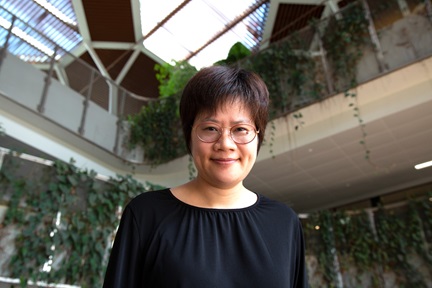Wastewater-based epidemiology and surveillance of COVID-19
Backed by large grants, NTU researchers are tracking SARS-CoV-2 in wastewater to monitor the prevalence of SARS-CoV-2 infection in populations.

Backed by large grants, NTU researchers are using wastewater to track SARS-CoV-2 epidemiology and transmission in communities.
A key challenge for public health officials during the COVID-19 pandemic is how best to monitor the prevalence of SARS-CoV-2 infection in a population. One promising idea for the early detection of viral outbreaks at the population level is wastewater-based epidemiology.
“By monitoring sewage from various urban areas or complexes such as residential blocks, dormitories or medical facilities, we aim to rapidly identify COVID-19 outbreaks without invasive procedures involving human interactions, and in a very cost-effective manner,” says Prof Shane Snyder, Executive Director of NTU’s Nanyang Environment and Water Research Institute.
Prof Snyder is leading the project “Wastewater-based epidemiology of COVID-19 and related markers in Singapore: Novel and cost-effective methods for tracking epidemic and endemic diseases”, which is supported by a grant from Singapore’s Public Utilities Board.
By harnessing the lnstitute’s expertise in wastewater management and knowledge of Singapore’s complex sewage collection system, as well as deploying sensitive PCR assays and studies on the decay of SARS-CoV-2 in wastewater for model optimisation, Prof Snyder hopes to achieve a warning level for SARS-CoV-2 prevalence of 0.001% or better—equivalent to one case per 100,000 residents.
Wastewater surveillance of COVID-19 in the community is also underway at NTU’s Singapore Centre for Environmental Life Sciences Engineering (SCELSE). Joining forces with Singapore’s National Environment Agency, the team—led by Assoc Prof Janelle Thompson of NTU’s Asian School of the Environment—helped set up surveillance methods at the dormitories of foreign workers, some of which became centres of COVID-19 outbreaks. The researchers also support community-wide surveillance at Singapore’s four wastewater reclamation plants. Information from this approach has already been integrated into Singapore’s COVID-19 response.
The team’s new grant, “Sewage-based surveillance for rapid outbreak detection and intervention in Singapore”, is supported by the National Research Foundation, Prime Minister’s Office, Singapore, under its Campus for Research Excellence and Technological Enterprise (CREATE) programme. Focusing in parallel on SARS-CoV-2 and other viral pathogens, the grant includes SCELSE’s Prof Stefan Wuertz of NTU’s School of Civil and Environmental Engineering and Asst Prof Monamie Haines of NTU’s School of Social Sciences, as well as investigators from the National University of Singapore and the Singapore-MIT Alliance for Research and Technology.














/enri-thumbnails/careeropportunities1f0caf1c-a12d-479c-be7c-3c04e085c617.tmb-mega-menu.jpg?Culture=en&sfvrsn=d7261e3b_1)

/cradle-thumbnails/research-capabilities1516d0ba63aa44f0b4ee77a8c05263b2.tmb-mega-menu.jpg?Culture=en&sfvrsn=1bc94f8_1)

7e6fdc03-9018-4d08-9a98-8a21acbc37ba.tmb-mega-menu.jpg?Culture=en&sfvrsn=7deaf618_1)






